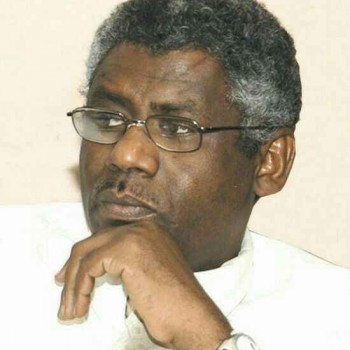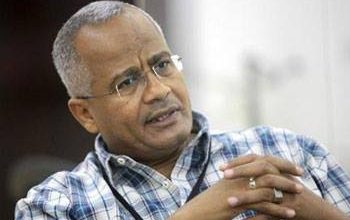
As I See It
Adil Al-Baz
1
In the first part of this article, I mentioned that we rarely talk about the economics of war, even though the essence of this war is distinctly economic. It is a war where the victor will claim the treasure—the unlimited resources of Sudan. Was the war not ignited solely to plunder these resources?!
We concluded the previous episode by examining the economic situation of the rebel militias. Today, we will see how Sudan’s economy was managed amidst a sudden war that paralyzed and wasted most of the state’s capacities and all its economic institutions, resulting in an 80% loss of state revenues.
2
The economy over the past year and seven months, the duration of the war, relied on three main resources to compensate for the lost revenue that the state lost when the war broke out.
The first resource is gold. Fortunately, most of the large mining companies and artisanal mining areas are located in the north (70%), regions free of rebellion. However, due to the shock of the war and many fears, some major companies ceased operations because of high production costs resulting from rising fuel prices. This led to a decline in gold production. Official data indicates that gold production dropped to 6.4 tons in 2023 compared to 41.8 tons in 2022.
The artisanal and traditional mining sites shrank from 14 states to 6, and the number of gold markets decreased from 72 to 52 after the war broke out in mid-April 2023. Major companies with concessions, most of which are foreign, also ceased operations.
3
A surprising development occurred at the beginning of 2024, when gold production surged to 29.2 tons from the start of the year until August, generating actual revenue of $1.86 billion. Projections indicate that production could reach 60 tons by the end of the year, especially with the return of six major foreign companies to operate in their concession areas. The sector also saw the return of businessmen who had previously suspended their commercial activities, while laborers who lost their livelihoods turned to mining sites.
The gold sector had achieved its highest revenue in 2022, with earnings amounting to $3.6 billion.
4
The gold revenues mentioned above accounted for the highest share of state revenues, helping to avert a total economic collapse that had been anticipated. These revenues also provided an essential source for financing the significant war needs, including weapons, ammunition, and soldier salaries.
This occurred in the absence of external support or allies capable of continuously covering the war expenses, except for three countries that provided substantial support to Sudan, details of which will be revealed in time.
5
Expatriates played a significant role in supporting the state’s resilience, covering expenses and costs that the state had previously provided to employees. With the state machinery halted, expatriates took on the costs of education, salaries, healthcare, and living expenses, fulfilling the state’s duties towards their extended families, both inside and outside the country as refugees.
6
Some businessmen generously supported the state, standing by it during critical moments when it needed everything, and its coffers were empty. They contributed from their resources, with some even borrowing from foreign banks to meet the state’s urgent needs. They also helped purchase weapons and facilitated important agreements.
7
The local community bore a significant burden in the war effort, providing provisions for most military movements stationed in certain states for extended periods. Tribes also contributed large waves of in-kind donations, supporting the army in its various camps. Contributions from some areas and tribes extended to purchasing weapons, including heavy and technologically advanced ones.
8
Although the state managed to endure and overcome the initial shock of the war, and even throughout the year and seven months with an 80% loss of its revenues, the question remains: What are its plans for the future? Especially as the war continues and seems likely to drag on, necessitating continuous and substantial spending on all fronts.
The state will continue relying on gold as a primary resource for funding the war and its limited activities. It will also seek to maximize the benefits from the alliances it has recently established, particularly with Qatar, Russia, Iran, China, and Algeria. It could secure funding by mortgaging some gold concessions and mines to these countries, while adopting policies that attract global mining companies, given the rising global interest in gold.
The state may also enter partnerships in other sectors that yield quick returns, such as large agricultural projects (like the Zadna project). Additionally, local and community support for the armed forces will continue, along with expatriate support for families, alleviating some of the state’s responsibilities towards its citizens.
9
It may take several years for the Sudanese economy to recover. However, as the army continues to defeat the rebellion, life will gradually return to the liberated areas, revitalizing local trade. On the other hand, the cost of imported goods will remain high for a while until local industries resume production of basic commodities.
The state will need to provide production inputs for vital sectors, such as agriculture and livestock. Although these sectors may not generate significant financial returns, they will provide food, a critical component for stabilizing citizens domestically, especially with the anticipated return of more Sudanese from abroad.
Finally, the state must adopt flexible policies that absorb shocks and curb the rise of the dollar in the parallel market, while boosting production in high-yield sectors to create jobs for those who lost their livelihoods due to the war.



